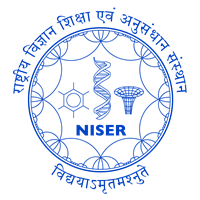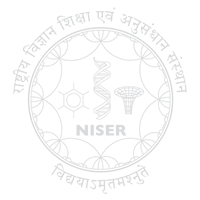Course: UG-Elective, PG-Elective
Approval: 42 Lectures + 14 Tutorials
Credit: 8
Outcome:
This course teaches advanced topics in quantum mechanics which provides the much needed background in concepts and technique in present day research in interface of the area of quantum mechanics, many body physics and information theory.
Prerequisite:
P303 (Quantum Mechanics II)
Syllabus:
PART I: Quantum entanglement & applications:
- Density matrices
- Tensor product and entangled states coherent and squeezed states; Bell basis
- Quantum teleportation
- EPR and Bells inequalities
- Shannon entropy: Qbits, introduction to quantum computing principles; measurement and decoherence
PART II: Introduction to many particle QM:
- Creation/ Annihilation operators; Symmetization/Antisymertization; many body operators, Boson/Fermion coherent states, Grassmann algebra and Gaussian integrals using coherent states.
- Dynamical variables and dynamics of identical particles
- Applications to many body systems: Angular momentum of system of identical particles, first order perturbation in many body systems, introduction to Hartree-Fock methods.
PART III: Symmetries in QM
- Group representation, Point group symmetry, Lie Groups; Schur lemma, orthogonality theorems, irreducible representations, accidental degeneracies; Irreducible tensor operators and direct product representations, Wigner Eckart theorem
- Applications including molecular orbitals, space time symmetries of Bloch states; normal model of vibrations; characters of angular momentum states; SU(2), SU(3) representations
Reference Book
- Part-I
- Entangled systems by Jurgen Audretsch
- Density Matrix Theory and Applications by Karl Blum
- Quantum Mechanics by Leonard Susskind
- Modern Quantum Mechanics by J. J Sakurai
- Part-II
- Quantum Mechanics Merzbacher (Chapters 21 and 22)
- Quantum many particle systems J. W. Negele and H. Orland (Chapter 1)
- Quantum Mechanics Schiff (Chapter 14)
- Elements of Advanced Quantum Theory by J. M. Ziman (Chapters 1,2 and 5)
- Modern Quantum Mechanics by J. J Sakurai
- Part-III
- Group Theory by M Tinkham
- Group Theory by Hamermesh
- Lie Algebras in Particle Physics: from Isospin To Unified Theories by Howard Geogie
- Group theory and Chemistry by Bishop
- Topics in Condensed Matter Theory by Michele Cini
- Elements of Advanced Quantum Theory by J. M. Ziman (chapter 7)
- Solid State Physics by Ashcroft and Mermin


